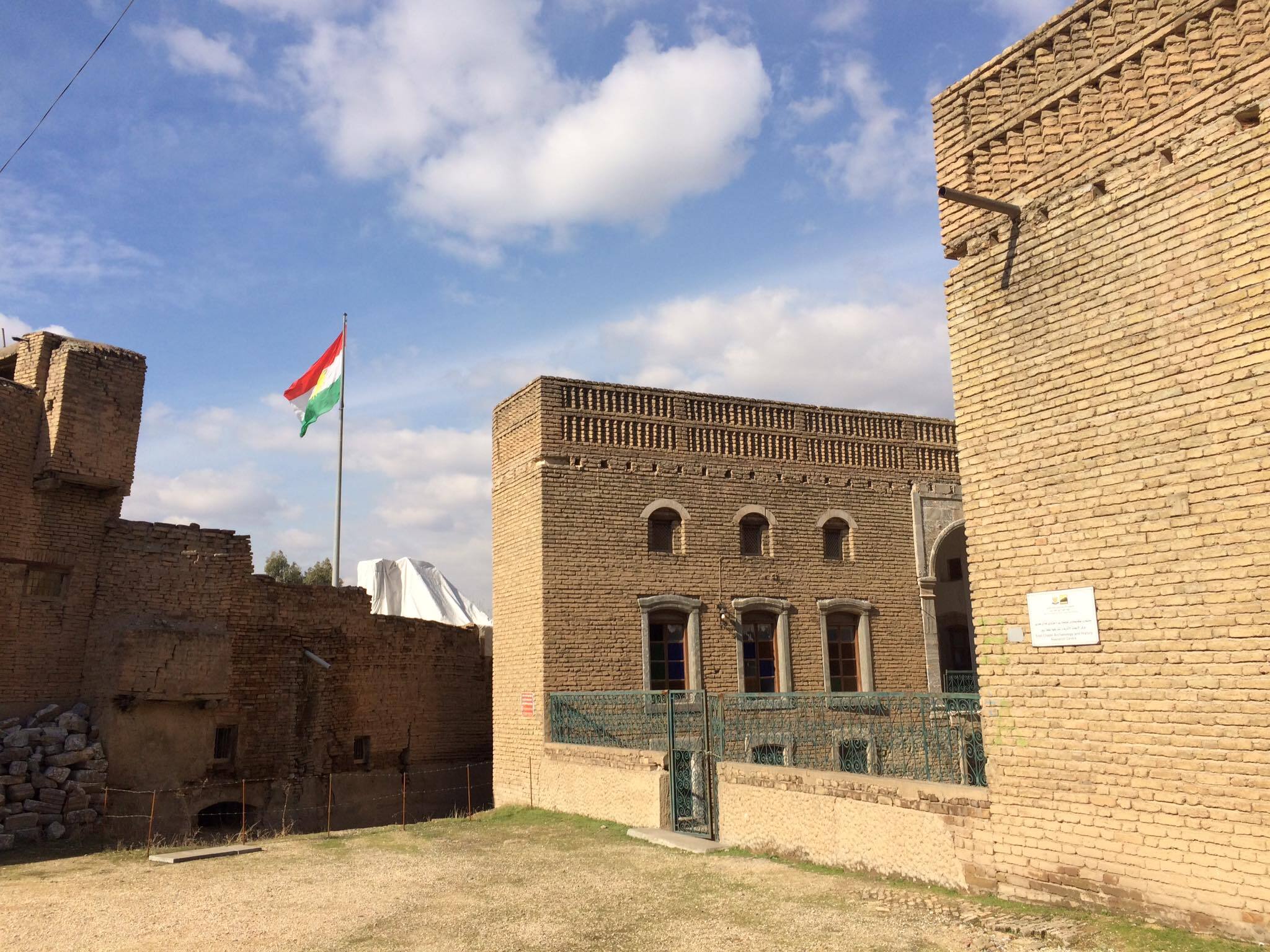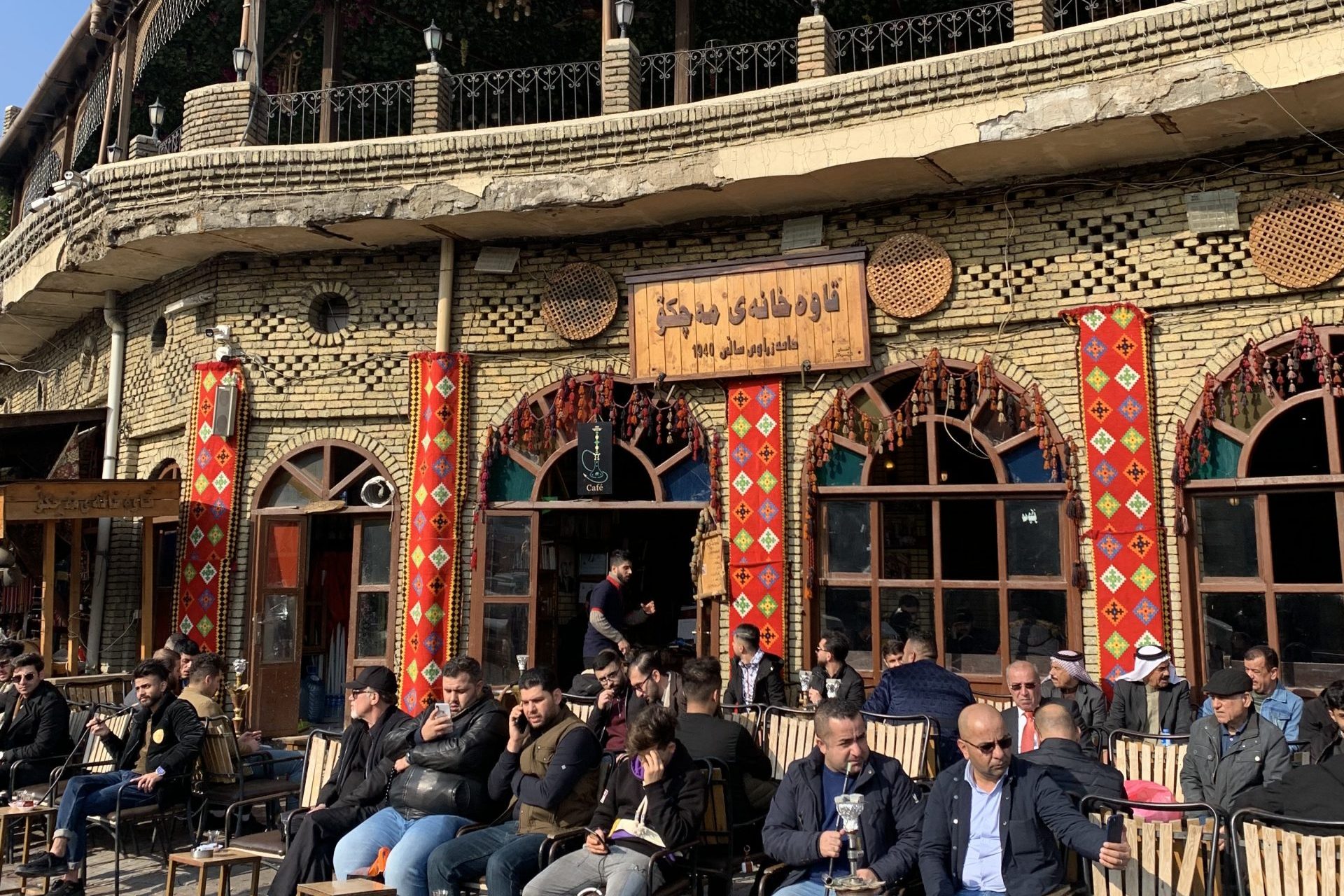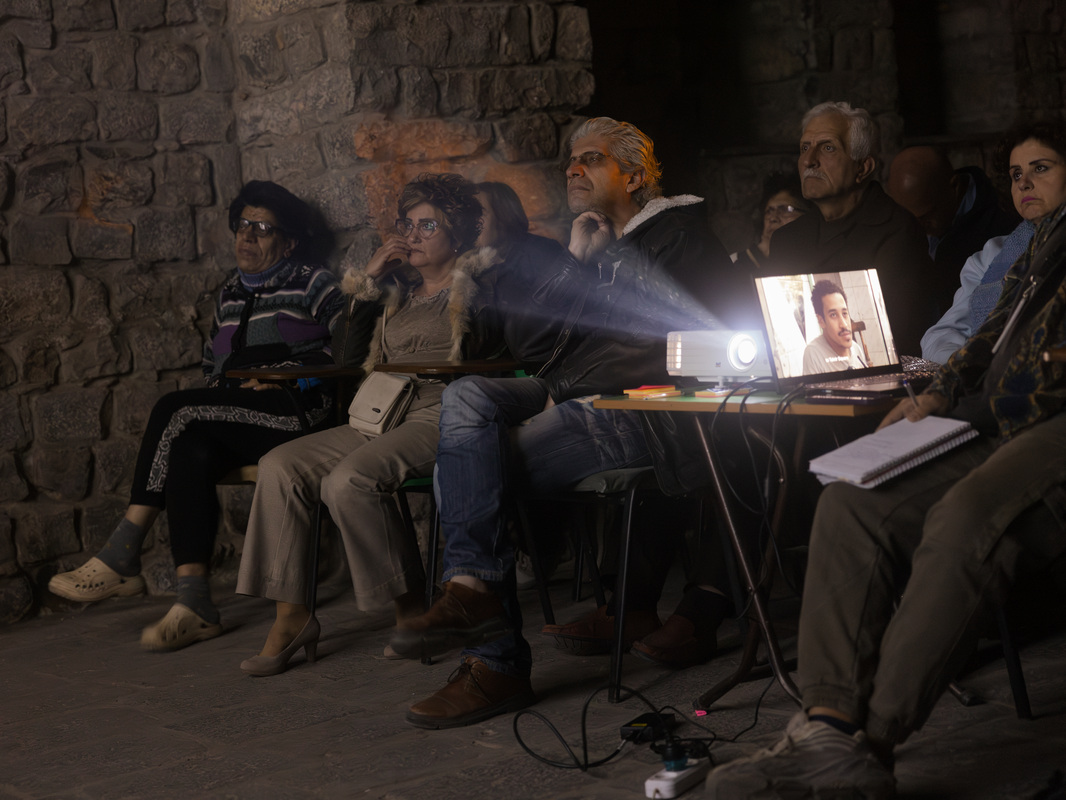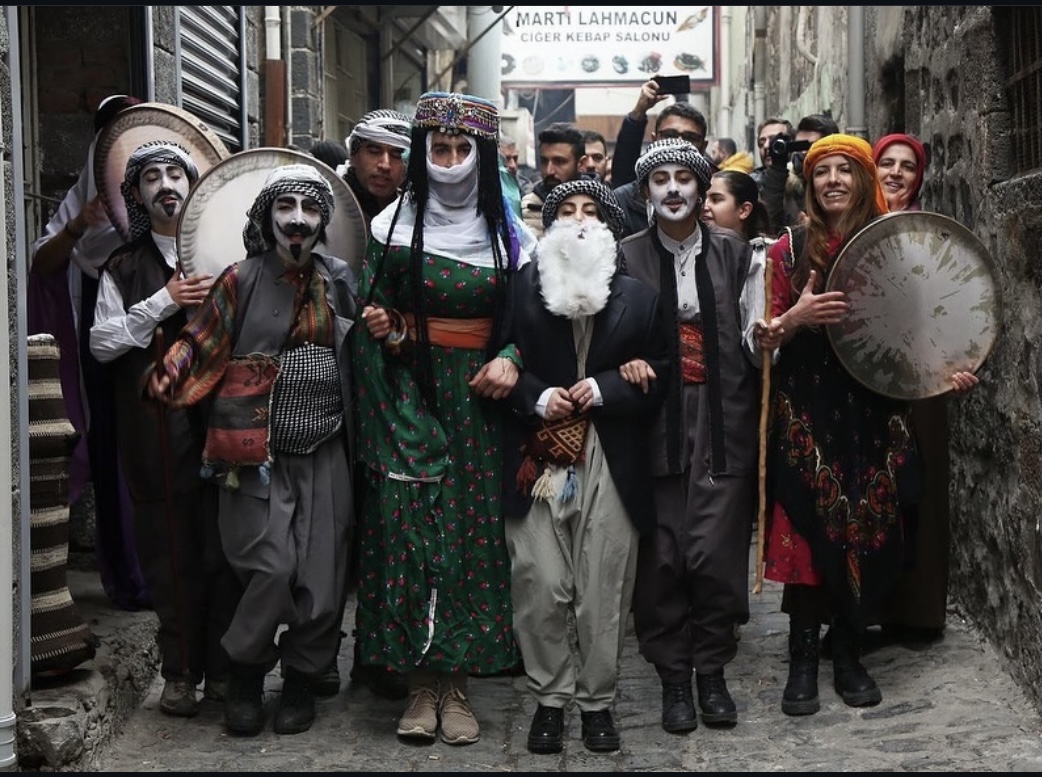Does Identity Align with Development? Music in Erbil as a Case Study

The Erbil Citadel | Picture Credits: The Amargi
Erbil goes beyond being the capital of the Kurdistan Region. Its streets reflect its deep-rooted heritage and carry the melodies of Kurdish music, characterised by experiences across multiple generations..
The sounds of the buzuq, daf, darbuka, and santoor have disappeared, and Kurdish ballads and Iraqi laments have been replaced by house and techno beats
While the towering Erbil Citadel and the bustling markets at the heart of the city paint a distinctly Kurdish picture, nighttime shifts the focus toward towering buildings and luxurious hotels, and the traditional sounds of the tanbur are drowned out by the hum of modernity and electronic beats
The sounds of the buzuq, daf, darbuka, and santoor have disappeared, and Kurdish ballads and Iraqi laments have been replaced by house and techno beats and the energetic calls of DJs. The music in cafés has lost a lot of its identity; everything is there, yet nothing leaves a lasting impression.
Elegance amid Strange Details
After a long workweek, excitement builds as you, an Erbil resident, head to your favorite restaurant. The picture of the warm welcome that awaits you– a friendly young man greeting you with “Fermo kaka,” a menu rich with local delicacies, a waiter explaining Kurdish and Iraqi dishes, and a young artist singing a distant melody– is now removed from reality. Now, the details are elegant but mismatched. The restaurant has a Kurdish name, the host is Lebanese, the waiter is Syrian, the menu is Western, and the music is played by a DJ with an unfamiliar beat. At the next table sit two young men speaking fluent English with distinct British accents, enjoying a platter of Japanese sushi. Across from you, a Kurdish family—easily identified by their clothing and features—waits for their order, which soon arrives: Italian pizza.
You order your meal, try to enjoy the ambiance, and later return to your apartment, pondering what music would truly suit the scene you just experienced.
From Tanbur to DJ
In Erbil, a gradual yet distinct shift has occurred: traditional live performances have been replaced by DJ-driven parties. This change is more than just stylistic—it reflects cultural and social transformations, especially those of a younger generation eager to express its identity in its characteristically chaotic manner. A decade ago, live music performances were a common feature in luxury hotels and upscale restaurants, blending Kurdish and Arabic songs with traditional instruments such as the oud and violin.
Today, DJs are a staple of the nightlife scene in Erbil. Most modern cafés and festivals have DJs mixing Western and modern Arabic music, signaling a troubling loss of musical identity. Tourists exploring Erbil’s streets and markets, where vibrant Kurdish clothing is sold, expect to hear music that matches the scene. Instead, they may find themselves in a bustling bazaar, listening to Lady Gaga singing ‘Abracadabra’.
“There are several challenges affecting the music scene here. One major issue is that café and restaurant owners can’t afford the cost of hiring local bands, which typically include three to five members.”
This isn’t a new issue—it worsened after the 2020 economic shifts and COVID-19. Despite Erbil’s cultural diversity, it lacks a defined musical culture, likely due to a shortage of music schools. Most musicians are based in Baghdad or abroad. In the end, DJs are a practical solution given the lack of performers and the financial realities of running a restaurant.”
New Opportunities, But…
The rise of digital music has had mixed effects; while it arguably harms heritage and identity, it caters to diverse audiences and creates job opportunities for aspiring musicians, eliminating the need for formal training or auditions for live bands.
J.S., a Syrian engineer living in Erbil who works as a DJ, offered a different perspective:
“Venue owners feel they can control a DJ’s playlist to suit their brand and clientele, which influences the overall vibe. At the same time, it appeals to a larger audience since Erbil is home to Kurdish, Iraqi, and international communities. However, I believe this approach risks eroding musical specialization and identity. A combination of live performances and DJs would create a rich and balanced music scene. ”
Geography and Surrounding Circumstances
Multiple factors complicate efforts to preserve Erbil’s musical identity while keeping pace with cultural and urban evolutions. COVID-19 was not the only disruptor—regional tensions and ongoing political instability have also shaped business strategies, forcing investors to seek quick, steady profits over cultural preservation.
Bands focus on a single genre, while DJs can play multiple styles, catering to enthusiasts of Western, Arabic, and Kurdish music alike.
Mr. Salar, owner of one of Erbil’s largest restaurants, elaborates:
“I’ve been in the restaurant business for fifteen years and witnessed several changes in entertainment trends, not just in Erbil but across the Middle East. We’ve always relied on live music and specialized bands, especially to cater to the many expatriates living here. However, in the past six years, profitability has declined, so we had to rethink our strategy. Switching from live music to DJs was the best solution.
Bands focus on a single genre, while DJs can play multiple styles, catering to enthusiasts of Western, Arabic, and Kurdish music alike. Though this decision conflicts with my personal preference for a jazz and blues ambiance, we had to adapt to meet customer demands. I hope that one day, improved economic conditions and tourism will allow us to create a distinctive venue with a unified musical theme.”
An Identity Under Threat
The deeper one looks into Erbil’s music scene, the more complex it becomes. Economic pressures, urban expansion, cultural diversity, and foreign investment have brought it to a crossroads: experimentation and compromise are now necessary to cater to all audiences. While preserving identity is crucial in a city celebrated for its heritage and music, it risks becoming a luxury in times of financial hardship.
Erbil’s diversity creates opportunities to merge traditions with global influences, but it also raises concerns about the erosion of local heritage.
The shift from live performances to DJ-driven parties is more than a trend; it mirrors profound socio-economic changes. Erbil’s diversity creates opportunities to merge traditions with global influences, but it also raises concerns about the erosion of local heritage. Perhaps this is not identity loss but cultural adaptation to a fast-paced world. Yet, the danger of losing an integral part of Kurdish musical culture remains
The opportunity to craft a distinctive artistic identity that reflects Erbil’s ancient streets and Kurdish-Iraqi spirit is not yet lost. Balancing tradition and innovation to build a contemporary musical identity may be the key to giving Erbil a unique musical signature.
Hani Manzeljy
Hani Menzaljy, Syrian lawyer-turned-journalist with 9 years’ experience across major media agencies, radio, and TV stations in Iraq



